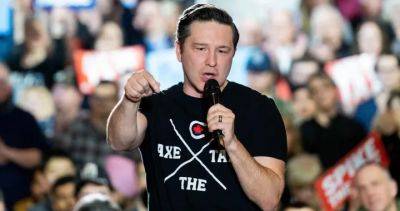The carbon tax has its critics — do any of them have better ideas?
What would Canada be doing to reduce its carbon emissions if Pierre Poilievre and the premiers had their way?
The Conservative leader has vowed loudly and often that he would repeal the federal carbon tax — though he has been evasive when asked whether he also would eliminate the federally mandated carbon price for industrial emitters. He is now joined by seven premiers who would like to see the carbon tax either frozen at its current rate or scrapped entirely.
Not to be outdone, Ontario Liberal Leader Bonnie Crombie now says she wouldn't implement a provincial carbon tax, while New Brunswick Liberal Leader Susan Holt says she opposes increasing the federal tax. That at least suggests federal Liberals can't expect much support from those provinces if Crombie and Holt win power.
It's obviously telling that so many political leaders have calculated they're now better off taking a position against the carbon tax. The sheer extent of that opposition does not bode well for Justin Trudeau's Liberal government.
But opposing the federal carbon tax is also a relatively easy thing to do — particularly when you're not responsible for explaining how Canada will do its part to reduce global greenhouse gas emissions.
The varying ambitions of the provinces
Canada currently is committed to reducing its greenhouse gas emissions by between 40 and 45 per cent below 2005 levels by 2030. If all planned policies are implemented, Canada could be in sight of reaching that target.
But that national target obscures significant disparities between provinces.
Important actions at the provincial level in years past — British Columbia's adoption of a carbon tax in 2008, Quebec's move to a cap-and-trade system in 2013, the phaseout of coal-fired electricity






